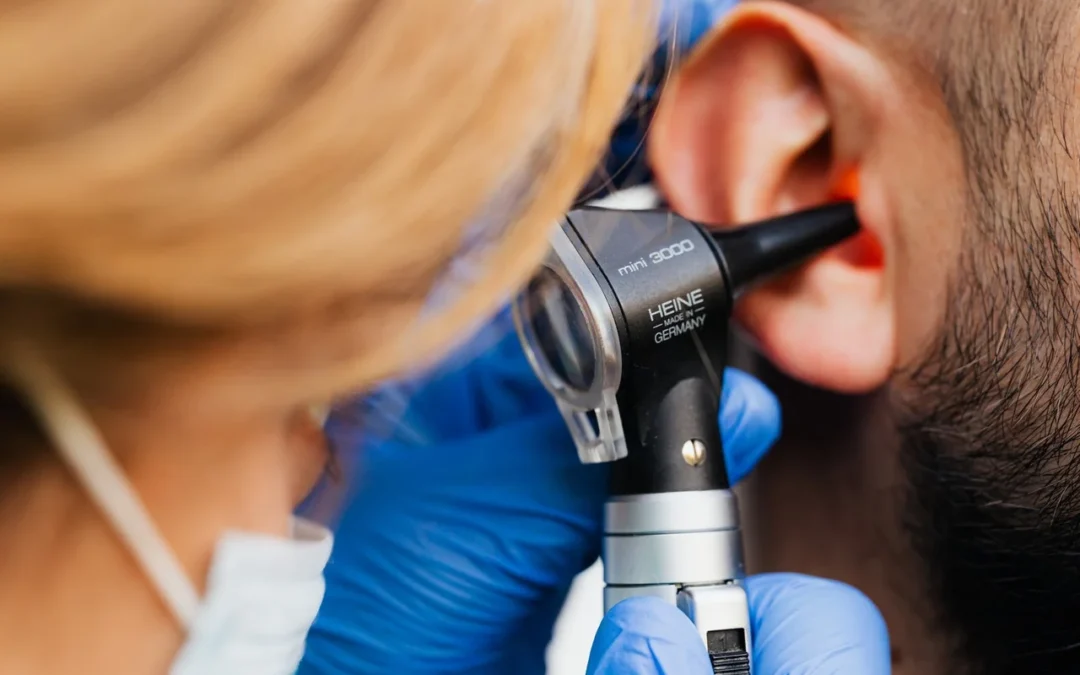Dr. R Palaniappan MBBS, MS, DLO, FRCS, MSc, FRCP
Consultant in Audio-vestibular Medicine/ Hon. Sr. Lecturer
Royal National Throat Nose and Ear Hospital/ UCLH NHS Foundation Trust
330 Grays Inn Road
LONDON, WC1X 8DA
United Kingdom.
GMC Full Registration with license to practice 4178004
Dr. Rudrapathy Palaniappan is a Consultant Physician in Audiovestibular Medicine with subspecialty interest in neuro-otology. His specialist field involves medical investigation and management of patients with tinnitus, hearing loss, and balance disorders. Dr Palaniappan is a Fellow of the Royal College of Surgeons of Edinburgh with a specialist qualification (FRCS) in ENT surgery. He holds a post-graduate diploma (DLO) in ENT surgery from the Royal College of Surgeons of England and MSc degree in Audiological Medicine from University College London. He has been made a Fellow of the Royal College of Physicians of London in the year 2013. I have nearly 30 years’ experience in managing patients with tinnitus, hearing loss, and balance problems.
Dr Palaniappan works as a part-time Consultant Physician in the adult Audiovestibular medicine & Neuro-otology department at the Royal National ENT & Eastman Dental Hospital, which is part of UCLH NHS Foundation Trust. He currently does one neuro-otology clinic and one audiological rehabilitation clinic per week as well as a special hearing clinic for thalassaemia sufferers. He is actively involved in teaching BSc/ MSc students in ENT/audiological science courses at UCL Ear Institute and medical students. He is a clinical supervisor and train specialist registrars in Audiovestibular Medicine.
Dr Palaniappan was an expert member in the NICE (National Institute of Clinical Excellence) committee on hearing loss and contributed to the development of clinical pathway. He has completed two terms as Audiovestibular Medicine Training Programme Director (TPD) for Health Education England, when he also chaired the Specialist Training Committee (STC). He was a member of the SAC (Specialist Advisory Committee) for Audiovestibular Medicine at the Royal College of Physicians and actively contributed to writing knowledge based questions and answers for the specialist training programme.
MEDICAL QUALIFICATIONS
FRCP RCP London June 2013
Certificate of Completion of Specialist Training Audiological Medicine March 1999
MSc (Audiological Medicine) University College London November 1997
FRCS (Otolaryngology) RCS Edinburgh March 1995
DLO RCS England October 1991
PLAB Examination GMC London January 1990
MS (Otolaryngology) Madras University March 1986
DLO Madras University April 1985
MBBS Madras University March 1983
PRESENT POST
1 Jan.2002 – till date
SENIOR CONSULTANT
Department of Audiovestibular Medicine/ Neuro-otology
Royal National ENT & Eastman Dental Hospital
London, United Kingdom.
MEMBER OF LEARNED SOCIETIES
Member of the Royal College of Physicians
Fellow of the Royal College of Surgeons of Edinburgh
British Association of Audiovestibular Physicians (ex-member of BAAP publicity committee, representative to UK council on deafness)
British Medical Association
University of London Convocation
CHAIN member
Neuro-otological and Equilibriometric Society (NES), Bad Kissingen, Germany
Indian Medical Association
Association of Otolaryngologists of India
Association of Paediatric Otolaryngologists of India
PUBLICATIONS/ ACADEMIC ACTIVITIES
Tinnitus/dtb-BMJ group, article reviewed and comments made. Nov 2012.
Chan C, Palaniappan R. Middle Ear Myoclonus: A New Technique for Suppression of Spontaneous Clicking Tinnitus. International Tinnitus Journal. 2010; 16(1):51-4.
Ratnayake Sudhira, Pajaniappane A, Palaniappan R. Unusual Presentation of Pulsatile Tinnitus – Case Reports. XVth Anniversary Symposium in Audiological Medicine; September 19-22, 2010; Krakow, Poland.
Kowdley H, Palaniappan R. Enlarged Vestibular Aqueduct – An Important Radiological Marker in Branchio Oto-renal and Pendred’s Syndrome (2007); Asian Journal of Ear Nose and Throat (ENT) Vol.10; Issue: 4; 13
Nandi R, Pajaniappane A, Palaniappan R. Real-time video recording of eye movements-an inexpensive system-Short Communication, The Journal of Laryngology & Otology, 1of 2; 2007.
Palaniappan R, Balance disorders in adults – Chapter15, Topics on Otorhinolaryngology Head and Neck Surgery, Andrew Swift (Ed); Quay Books, A division of MA Health Care Books (2006); pages 142-150.
Dizziness and Tinnitus care pathways for “Medic to Medic” programme, available on the Royal Free Hampstead NHS Trust (Free-net) website.
Palaniappan R. How to differentiate problematic dizziness; Pulse Clinical, December 2003: 44-47.
Palaniappan R, Griggs A. Helping patients cope with tinnitus; Pulse Clinical, July 2003: 40-43.
Palaniappan R. Balance disorders in adults-an overview; Hospital Medicine, May 2002; 63/5: 278-81.
Palaniappan R, Sirimanna T. Peripheral vestibular dysfunction in Chronic Fatigue Syndrome; International Journal of Paediatric Otorhinolaryngology; 64 (2002) 69-72.
Palaniappan R. The role of Audiological Physician in the Modern National Health Service (NHS); ENT News Nov/Dec 01; 10/5:61-62.
Palaniappan R, Snashall S, Woodcock J. Bilateral profound sensorineural hearing loss following pneumococcal meningitis in sickle cell disease-case report; CME Bulletin – Otorhinolaryngology Head & Neck Surgery.
Palaniappan R. Letter to the Editor ‘ENT News’ 1999; 8/3: 45.
Jayarajan V, Palaniappan R. Hearing Impairment – An unusual presentation of cerebral atrophy. CME Bulletin – Otorhinolaryngology Head & Neck Surgery 1998; 2/2: 67-68.
Palaniappan R. “Peripheral vestibular dysfunction in ME syndrome”, Electronic Publication – abstract in the BAAP web site.
Palaniappan R, Jayarajan V. “Patient Information Leaflets (PILs) – Do people read them?” a preliminary report, Electronic Publication – abstract in the BAAP web site.
Palaniappan R, Jayarajan V. “Neuro-otological manifestations of Multiple Myeloma”, Electronic Publication – abstract in the BAAP web site.
Palaniappan R, Reddy KS. Solitary Bony Metastasis in a case of Carcinoma of the Laryngopharynx. Indian Journal of Otolaryngology 1987; 39/3: 130-31.
TEACHING
Dr Palaniappan teaches regularly in various audiovestibular courses at the Ear Institute. I lectured in the 1st Qatar International Conference on Vestibular Assessment and Rehabilitation in DOHA between the 6th and 8thJanuary 2012. I supervise MSc student projects as required, at regular intervals.
RESEARCH INTEREST
i. Balance Disorders
ii. Autoimmune ear disease










